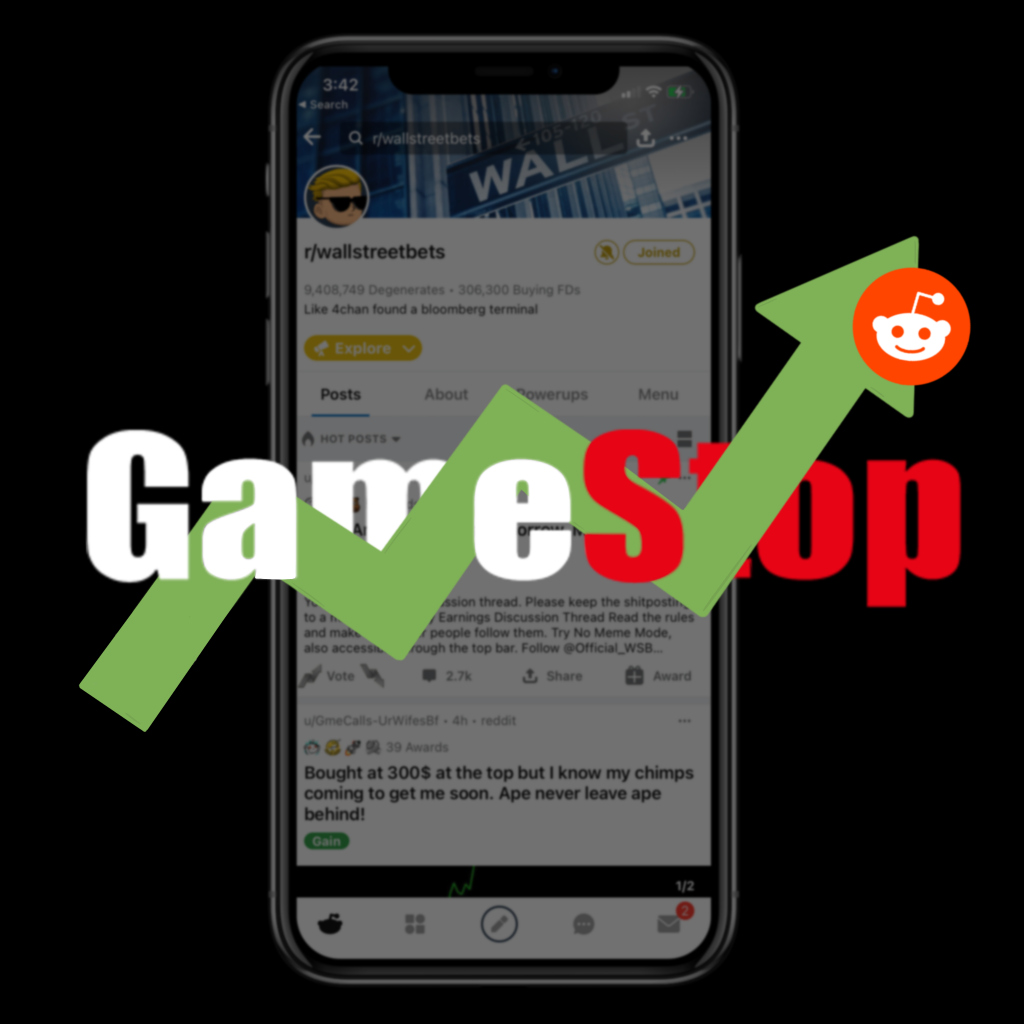How GameStop Enthusiasts Caused a Short Squeeze in the Stock Market
Texas A&M economics professor Alex Brown guides us through the ins-and-outs of the GameStop short squeeze, providing a deeper look into the seemingly bizarre situation.


Economics professor Alex Brown explains how GameStop enthusiasts caused a short squeeze and what this could mean for the future of the stock market.
By Amber Francis ‘22
In the last days of January 2021, something strange happened on Wall Street that made the world pause and take notice. Completely baffling the public and taking hedge funds by surprise was none other than video game retailer GameStop, whose stock prices skyrocketed over a period of a few short days in a Reddit-driven frenzy.
The company, who had recently been struggling to keep up with the demands of an ever-changing video game market, witnessed its stock prices climb from $4 to $400 seemingly overnight with little apparent rhyme or reason. GameStop trended on social media platforms for days, becoming a hot topic of discussion across all age groups and demographics. Months later, people are still wondering what happened, what facilitated this seemingly unusual event occurring, and what does it mean for the future of finance operations. Perhaps the most important question is: Why GameStop of all companies?
There were several factors at work that allowed this situation to occur, according to behavioral economics professor Alex Brown from the Department of Economics at Texas A&M University.
“Several hedge funds decided that GameStop as a company would suffer financially because of the restrictions of the pandemic and rise of downloadable games,” Brown explained. “They took steps to heavily short the stock, essentially borrowing it to sell it with the obligation to buy back later. This is a bet that the stock price will fall further in the future, but the initial selling also has the effect of lowering GameStop’s share price.”
People on the message board site Reddit took note of this, with users on r/WallStreetBets concluding the share price of GameStop was lower than what was a reasonable value for the stock. They reasoned that this low price was due to shorting by hedge funds and planned what’s known as a “short squeeze.”
In a short squeeze, if users are able to drive the price of a stock high enough, they can force hedge funds to liquidate their short position, driving the price even higher. The plan was largely successful, with users utilizing apps like Robinhood to buy up GameStop shares and forcing brokers to buy back the stock. Several hedge funds even liquidated their short position as a direct result of the squeeze.
Though the movement to buy GameStop shares began on Reddit, the scope of the situation quickly became bigger than anticipated. Users on other platforms like Twitter and Instagram remarked on the absurdity and hilarity of the situation, eventually coming to rally behind the people on r/WallStreetBets. Influencers even joined in on the fun, something that appeared to drive the stock price higher.
Word of the short squeeze made national headlines, with mainstream media outlets seemingly at a loss for how to assess the situation. The topic quickly dominated conversations both on and off the internet, becoming nothing short of a financial phenomenon.
Though some, especially mainstream media, may point to social media platforms like Reddit and internet degeneracy as the cause for the GameStop squeeze, Brown points out that such scenarios have existed long before the days of the internet.
“The situation described with the GameStop stock is the story of a classic financial asset bubble,” Brown asserts. “As long as assets have been traded, some are susceptible to bubbles, periods of rapid price accumulation followed by price decrease. The earliest examples go back to the price of Tulips in Holland in the 1600s. Social media is not necessary for these types of trading patterns to occur.”
Rather than a new occurrence brought about by the evolution of technology, these trading patterns are something caused by factors deeply rooted within human behavior, a concept known in behavioral finance as herding. The idea behind herding is that people feel much safer when doing what others are doing and less safe acting differently. Market behavior often appears very consistent with the idea that traders are following this principle, which implies that market prices should be more volatile than something a model based on fully rational trading would suggest.
“Here, a number of hedge funds all seemed to think GameStop was undervalued, but seemed less concerned with the risk of all of them taking short positions,” Brown remarked. “Similarly, users on Reddit continue to hold GameStop at what appears to be an inflated value, because others are doing so.”
Despite no changes in the company’s underlying financials, the price of GameStop shares rose exponentially over a short period. Then suddenly and with little explanation, RobinHood and other brokerages restricted trading on GameStop. This caused the price of the stock to fall, much to the anger of many hoping to cash in on the opportunity and frustration of those already holding GameStop shares. The reason behind these restrictions are still under investigation.
Though he sees no noteworthy changes in financial behavior on the horizon, Brown posits that changes are likely to occur in the regulation and innovation of financial products and systems.
“Robinhood will likely have to alter the way they offer options to users either to keep their business model feasible or to satisfy regulators,” Brown explained. “This may make it harder for these types of short squeezes to occur. Similarly, the SEC may attempt to further regulate what is said on social media regarding trading advice.”
There is clearly a great demand for market participation among people who haven’t traditionally participated in markets. The potential for these individuals to enter the market and learn to build wealth using traditional investing strategies could represent a very positive development for financial knowledge among the general public, not just Wall Street workers.
The 2021 GameStop short squeeze peaked the interest of people who had no prior experience or knowledge of stocks and finance. This could have tangible, long-lasting effects on the way financial markets are operated and discussed in the public sphere.
